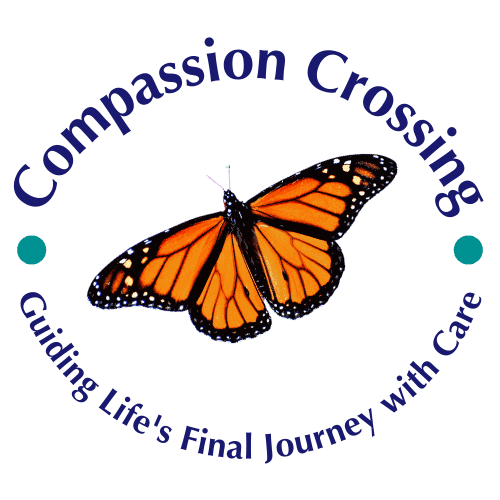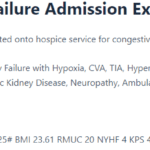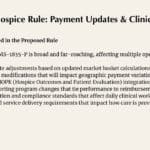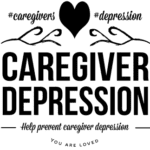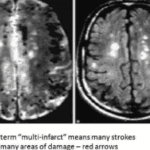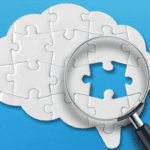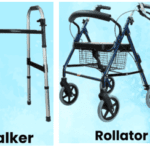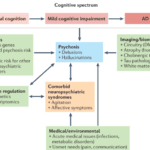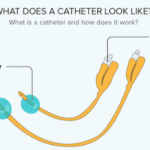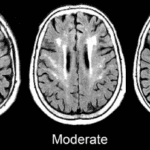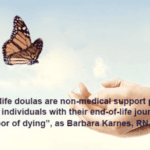Compassion Crossing offers you support and guidance when a loved one is dying. Please feel free to use the Featured Categories to find the main areas of the site, browse through Past Articles, peruse the categories and tags (genres), resources, and popular articles.

- Crafting a Comprehensive Hospice Admission Note: A Guide for Registered NursesLearn about the essential elements of a comprehensive hospice admission note. This guide helps registered nurses document crucial patient information, from diagnoses to physical assessments, ensuring the delivery of quality end-of-life care and proper eligibility documentation.
- How Hospitals Can Help Place Dementia Patients in Appropriate Care SettingsDiscover how hospitals are crucial in helping families place dementia patients in appropriate care settings. This article explores various care options, discusses challenges in placement decisions, and provides evidence-based strategies for effective hospital-based care coordination to ensure the best possible outcomes for patients and their loved ones.
- Navigating the FY2026 Hospice Proposed Rule: A Clinical Manager’s Guide to Payment Changes and Operational ImpactThe FY2026 Hospice Proposed Rule (CMS-1835-P) introduces critical payment rate adjustments and wage index modifications that will reshape hospice operations. This comprehensive analysis examines the financial implications for providers and the direct impact on clinical managers and frontline staff delivering end-of-life care.
- The Multifaceted Value of Hospice Care: Enhancing Quality of Life and BeyondExamine the profound impact of hospice care on patients, families, and the healthcare system. This article investigates the physical, emotional, and financial benefits of hospice care, emphasizing its crucial role in end-of-life care and overall healthcare efficiency.
- Retrogenesis and Dementia: Understanding Reverse Development for Better CareDiscover the theory of retrogenesis and its profound impact on dementia care. This comprehensive guide helps nurses, caregivers, and families understand how dementia reverses developmental stages, offering practical insights for tailored care strategies. Learn to navigate the challenges of dementia with empathy and effectiveness.
- How Hospice Care Alleviates Depression in Caregivers and Bereaved FamiliesHospice care not only supports terminally ill patients but also plays a crucial role in reducing depression among caregivers and bereaved families. Discover how compassionate care and targeted interventions make a difference.
- Navigating the Regulatory Landscape: Essential Timeline Requirements for Hospice ProvidersExplore the essential regulatory timeline requirements for hospice providers, covering everything from initial certifications to recertifications, nurse visits, and face-to-face encounters. This comprehensive guide helps ensure compliance and proper billing practices for hospice services.
- Navigating Multi-infarct Dementia: A Comprehensive Guide for Families and CaregiversMulti-infarct dementia is a challenging condition that affects not only patients but also their families and caregivers. This comprehensive guide explores the disease’s progression, common symptoms, and effective care strategies. Learn what to expect and how to provide the best support for your loved one from diagnosis through end-of-life care.
- Navigating Posterior Cortical Atrophy: A Comprehensive Guide for Patients, Caregivers, and FamiliesPosterior cortical atrophy (PCA), also known as Benson’s syndrome, is a rare form of dementia affecting visual processing. This article explores PCA’s symptoms, progression, and impact on daily life. Learn how to provide effective care, recognize when to seek help, and navigate the challenges of this complex condition.
- Navigating the Journey: A Caregiver’s Guide to Dementia ProgressionDementia is a challenging journey for both patients and caregivers. This comprehensive guide explores the stages of dementia progression and offers practical advice on care strategies, treatment options, and support resources. Learn how to navigate the changes and provide compassionate care throughout the journey.
- Navigating Utilization Behavior: A Guide for Dementia CareThis article delves into Utilization Behavior in dementia, offering practical advice for families and caregivers to create a safe environment and mitigate the challenges associated with this condition.
- Guiding Loved Ones with Dementia to Use Mobility Aids with CompassionDiscover practical and compassionate strategies for encouraging a loved one with dementia to use a cane, walker, or wheelchair. Enhance their safety and quality of life with these tips.
- A Comprehensive Guide to Dementia-Induced Psychosis for Hospice Care ProvidersThis guide provides hospice nurses, caregivers, and family members with essential information on dementia-induced psychosis, including its signs, symptoms, differentiation from other conditions, and effective management strategies.
- Practical Tips for Caregivers: Ensuring Continuous Oxygen Use for Dementia PatientsThis article provides practical tips and strategies for caregivers and family members to prevent dementia patients from removing their oxygen nasal cannula. Ensuring continuous oxygen use is essential for their health and well-being.
- Caring for Your Loved One with a Foley Catheter: A Step-by-Step GuideDiscover how to provide expert care for a loved one with a Foley catheter. This comprehensive guide, written by a hospice nurse, covers essential steps, common problems, and medication tips. Learn to change tubing, prevent clogging, and ensure comfort during end-of-life care. Empower yourself with the knowledge to support your loved one effectively.
- Understanding Invalid Primary Diagnosis Codes for Hospice ClaimsLearn about the diagnosis codes not allowed as primary diagnoses on hospice claims. This guide helps hospice agencies ensure accurate billing and optimal patient care.
- Caring for Individuals with Chronic Small Vessel Disease (CSVD): A GuideCaring for someone with Chronic Small Vessel Disease (CSVD) can be challenging, but with the proper knowledge and strategies, you can make a significant difference. This guide offers practical advice on creating a supportive environment, managing symptoms, and improving the quality of life for your loved one with CSVD.
- Compassionate Companions: The Synergy of Hospice Care and End-of-Life DoulasExplore the powerful combination of hospice services and end-of-life doulas in providing holistic care for those facing terminal illness. Learn how these two approaches complement each other to support patients and families through the end-of-life journey.

Compassion Crossing is a website that provides valuable information and support to individuals involved in end-of-life care, including caregivers, family members, and healthcare professionals. The website has a user-friendly design, informative articles, and a commitment to empowering its readers with the skills and empathy required for this meaningful journey.
